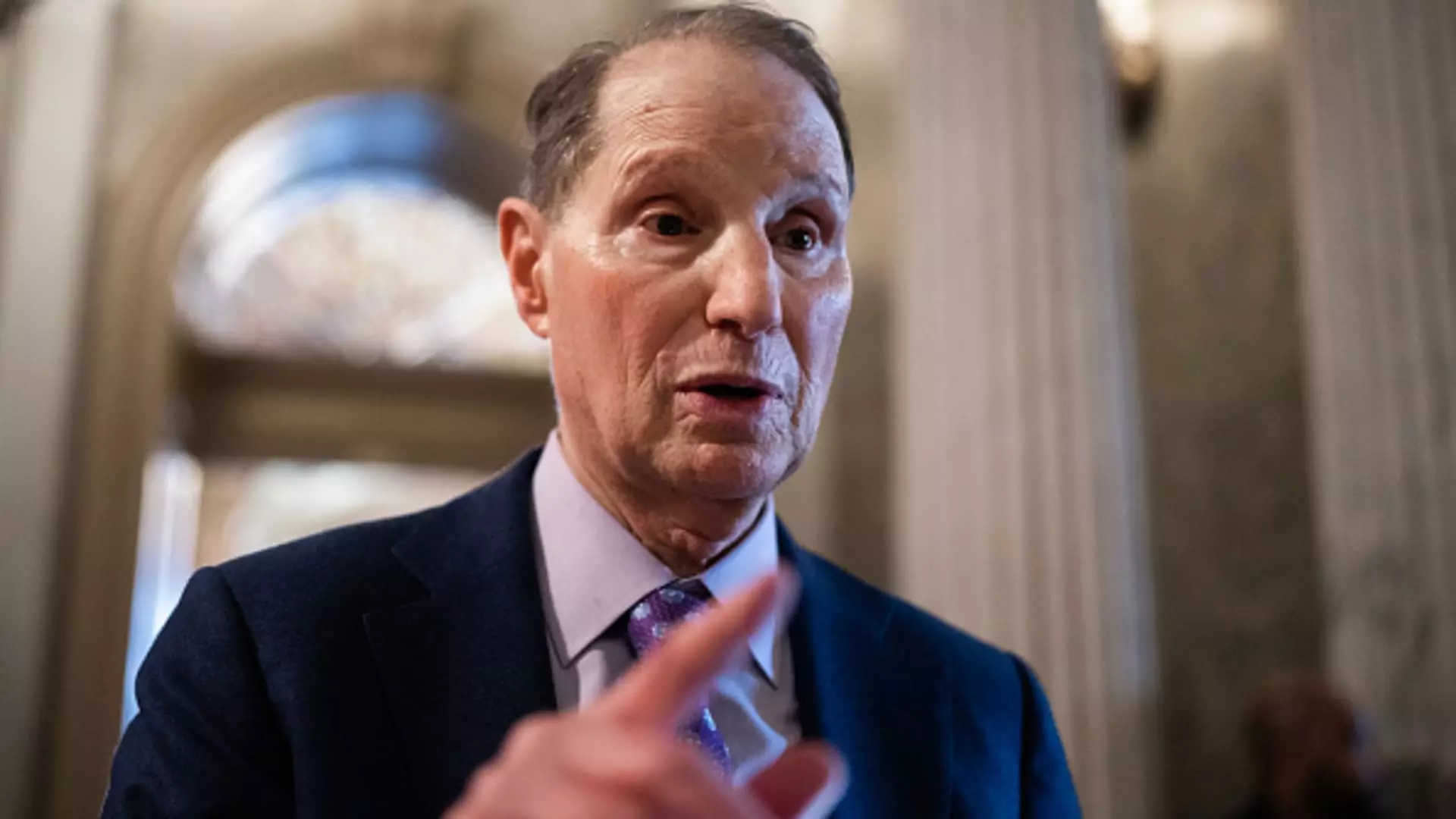On a recent Tuesday, all 50 states faced a significant challenge as Medicaid reimbursement portals became non-operational, a direct consequence of a funding freeze enacted by the Trump administration. This unprecedented closure has raised alarms among lawmakers and healthcare providers alike, highlighting the precarious nature of Medicaid’s financial support system. As reported by Senator Ron Wyden from Oregon, this halt creates a dangerous void, affecting the payment mechanisms essential for healthcare delivery. The repercussions of this shutdown are not a mere inconvenience; they have critical implications for the financial viability of healthcare providers who rely on timely Medicaid reimbursements.
Senator Chris Murphy of Connecticut articulated the dire situation, stating that his state’s Medicaid payment system was effectively “turned off.” In his social media communications, he expressed frustration and urgency, indicating that not only are doctors and hospitals unable to receive payments, but a broader conversation is underway regarding the continuation of services offered to Medicaid beneficiaries. With approximately 72 million Americans relying on Medicaid for their healthcare needs, the stakes could not be higher. Murphy’s outburst on Twitter poignantly underscored the chaos that ensues when bureaucratic decisions intersect with essential healthcare services.
Central to the crisis was a memo released by Acting Office of Management and Budget Director Matthew Vaeth, which announced a “Temporary Pause of Agency Grant, Loan, and Other Financial Assistance Programs.” Under this direction, federal agencies were mandated to assess and evaluate all financial assistance programs relative to President Trump’s administrative policies. This sweeping directive essentially froze vital funding streams that sustain many public health initiatives including Medicaid. White House spokesperson Karoline Leavitt’s vague assurances that she would investigate inquiries about the impact on Medicaid payments further fueled frustrations, as immediate clarity was crucial in such a critical situation.
The shutdown of Medicaid systems doesn’t merely represent transactional delays; it poses significant existential threats to healthcare institutions. Many hospitals, particularly those serving lower-income communities, depend heavily on Medicaid funds to maintain operations. As these funds dry up, they face potential layoffs, service reductions, or even closure. Without timely payments, healthcare providers may struggle to pay their staff, procure necessary medical supplies, or maintain operational overhead. This systemic disruption calls into question the resiliency of the Medicaid infrastructure and its ability to adequately support physicians and patients alike.
As the aftermath of this situation becomes clearer, it is evident that immediate and decisive action is necessary from both federal and state agencies. The dialogue initiated by lawmakers like Murphy and Wyden must lead to tangible results—namely, a restoration of Medicaid reimbursement mechanisms to ensure uninterrupted healthcare. Health policy experts and advocates will likely emphasize the importance of safeguarding such critical programs from political disruptions in the future. The need for a stable and reliable Medicaid system is essential, not just for the millions who depend on it, but for the healthcare system at large, which must remain robust and functional amidst swift political changes.


Leave a Reply